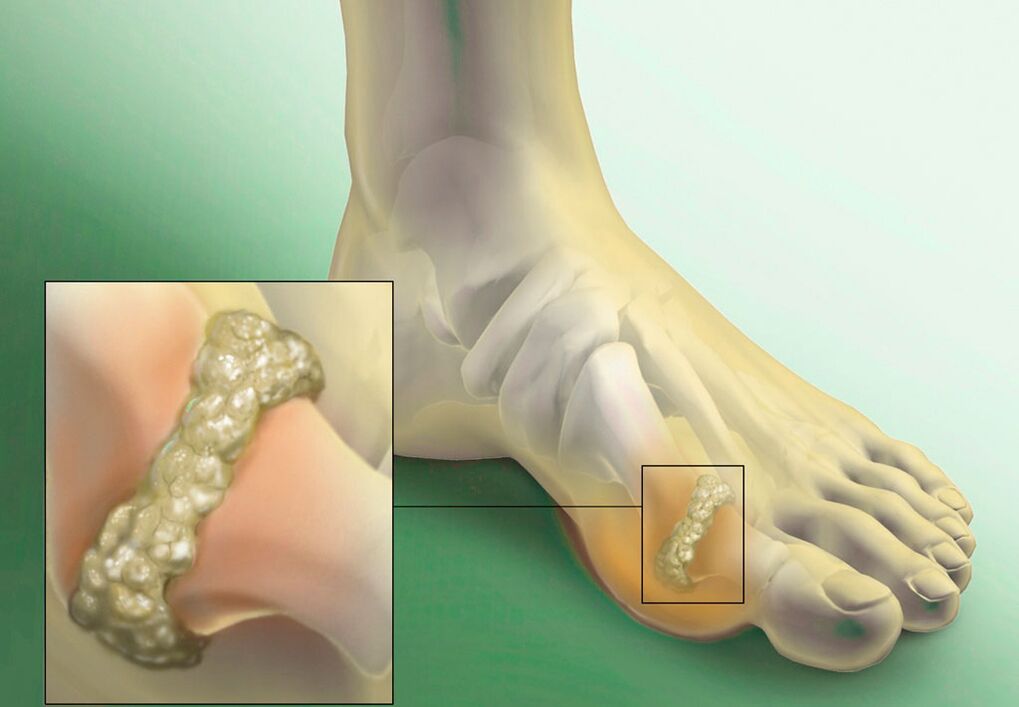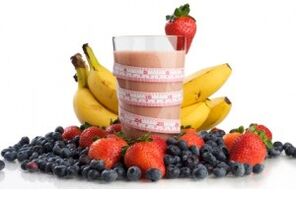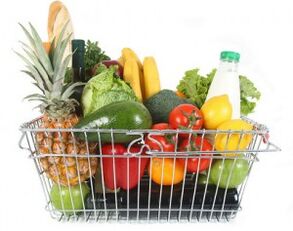The modern world is full of all kinds of food temptations. At every step, we are welcomed by small shops with bars, snacks, bread, pies and other things, which look tasty, but will certainly sooner or later lead to stomach and digestion ailments in general.
In ancient times, when these diseases occurred, the patient was unaware of the treatment methods and led a normal lifestyle, aggravating his condition, which ended up having disastrous and sometimes even fatal consequences.
There are now many treatment options for gastrointestinal and gastrointestinal disorders. But for the treatment to be successful, you need to limit yourself and completely revise your usual diet.
What do we call gout?

Gout is a disease directly related to a disorder of the human body. With gout, uric acid salts are retained in the tissues of the joints, which leads to very serious consequences. Gout was first mentioned during the time that Hippocrates lived, so there were many of its manifestations.
Today, fortunately, the disease is less common, with around three cases per thousand people, although outbreaks of the disease have become more frequent in recent years.
This increase in the percentage of morbidity from this disease is associated with the foods people eat and their volume.
Initially, a sharp increase in the concentration of uric acid in a person's blood leads to illness. Derivatives of this concentration are transported through the body with the help of blood and are deposited in joints, muscles and even organs. These deposits are dangerous because infected tissue can be destroyed. The increased concentration of this acid is caused by the fact that the kidneys do not have time to process and remove its excessively abundant production from the body. Also, the problem can arise due to illness and kidney malfunction.
The first symptoms of the disease are joint pain, redness of the big toes and fever. It is noteworthy a very important point that if you do not go to the doctor at the first symptoms and delay the disease, the affected joint will be totally destroyed, and this will result in disability, and if the organ is destroyed, there will be constant pain and death is possible. So it is necessary to take the disease as seriously as possible.
The manifestation of gout depends directly on how and what a person eats and how they live. No wonder that gout was formerly called the "disease of kings", as the inactive lifestyle, the constant use of fatty and heavy foods, the excessive consumption of alcoholic beverages together cause metabolic problems and, consequently, illnesses similar. Therefore, in the treatment of gout, strict adherence to proper diet and diet to reduce acid production is considered very important and even the main point. To find out the uric acid level in your blood, you just need to donate blood for analysis.
How to eat well?

The specificity of developing a diet for gout patients is aimed at restoring uric acid metabolism in the body. If you don't take urgent steps to restore this level, excess acids (sodium urate) will be flushed out throughout the body, causing widespread inflammation.
In addition to establishing the necessary diet, doctors advise to undergo treatment with medications, in addition to persistently engaging in physical therapy procedures, in addition, the person with gout is advised to lead a more active lifestyle, walking and exercising while open air.
Speaking of diet, it is important to highlight that a necessary step will be the exclusion of some contraindicated foods from the diet. When the disease gets worse, you cannot eat fish and meat, it is imperative to provide fast days at least twice a week, and ideally every other day.
The fasting days for a patient with gout are:
- Fruits and vegetables. You need to eat a pound and a half of fruit a day, which is allowed by your diet.
- Milk and kefir. In this case, the patient must drink up to two liters of this liquid per day.
- Curds and kefir. It is necessary to eat four hundred grams of cottage cheese and drink half a liter of kefir.
These fast days are helpful because they contribute to the dissolution of uric acid in the body and its removal. When the exacerbation of the disease subsides, the patient can continue to eat fish and meat, but strictly steamed, boiled, or baked. Remember that you need to eat these products no more than three times a week, not more often.
It is necessary to adhere to the correct water regime. You need to drink about three liters of clean water a day. You need to drink an hour before meals during an exacerbation of the illness. If there is no exacerbation, then the water can be replaced by another liquid, the main thing is that it is natural and fresh. You can also drink alkaline mineral water.
Fasting is contraindicated in gout, in which case the acid level will increase markedly, it is better to eat little but often.
Recommended menu for drop
With gout, you need to eat natural, healthy foods. From these products, you can make a menu for every day, but you should consult your doctor about the dosage, since everyone's diet can be individual.
List of acceptable products:
- Meat products: turkey, rabbit, chicken; chicken eggs.
- Lean fish; seafood: squid, shrimp.
- Cereals: wheat semolina, oats, corn, rice, buckwheat.
- Pasta; black and white bread.
- Vegetables: white cabbage, zucchini, eggplant, cucumbers, beets, potatoes, carrots.
- Onion, garlic, dill.
- Fruits: citrus fruits, apples, pears, apricots, melons and watermelons, peaches.
- Berries: Everything is possible except grapes and raspberries; dried fruits, except raisins; nuts.
- Sweets: not chocolates, candies, jellies, jellies, marshmallows, honey.
- Natural drinks: juices, fruit juices, fruit juices, kvass, one hour with lemon broth, rose hips or bran.
- First dishes without broth, olive oil; second courses are boiled or steamed products.

You can eat other foods, but in small amounts, like boiled sausages, bacon, sausages. You can eat tomatoes and plums about two a day and about twice a week.
Salt must be completely eliminated or its use significantly limited. It is best to cook food completely unsalted and add a little salt to prepared dishes that are already on the table. Of course, pickles, pickles and most spices should be removed from the diet.
It is recommended to reduce the consumption of protein foods (especially red meat), as the accelerated metabolism of proteins causes an increase in the concentration of urate. If you are overweight, you should also limit carbohydrate foods (especially baked goods and sweets).
Honey and figs, plums, grapes, some types of vegetables and roots (turnip, celery, rhubarb, cauliflower, pepper), as well as mushrooms, should only be included in your diet during remission.
Otherwise, it is necessary to consult a doctor, who will prescribe a more detailed diet for a certain degree of disease.





















